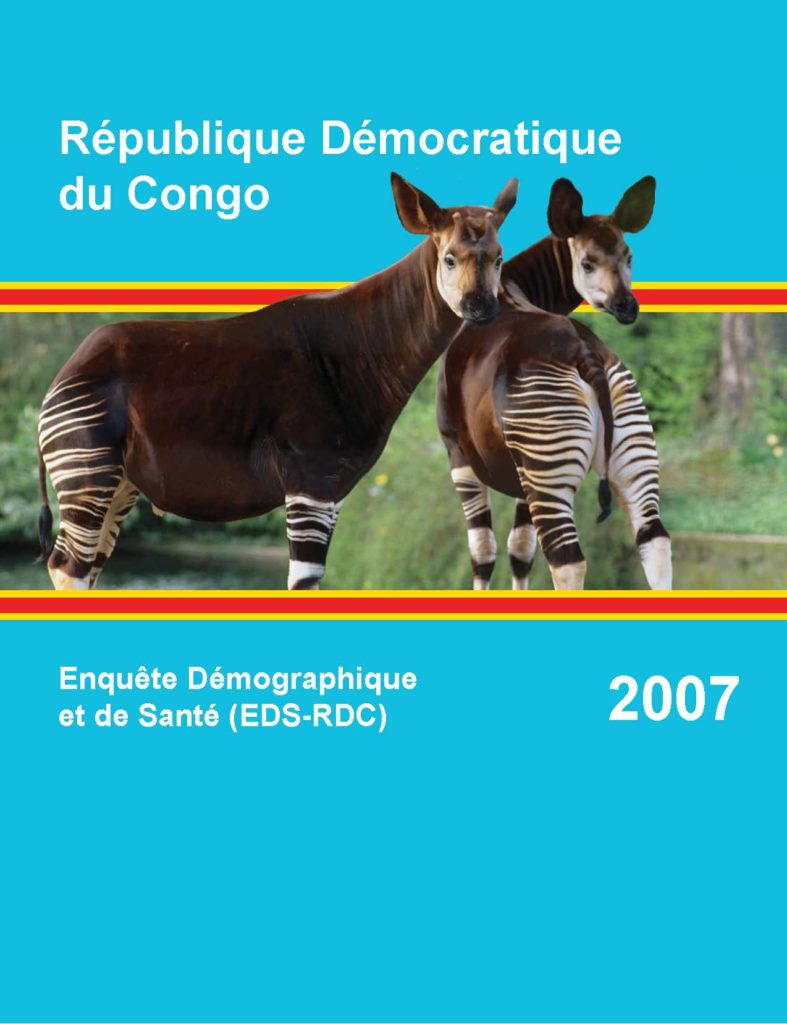Inside The DHS Program: Q&A with Gisèle Dunia
Name: Gisèle Dunia

Position title: Senior Advisor for Capacity Strengthening
Languages spoken: French, English, Swahili, Lingala, and Haitian Creole
When did you start at The DHS Program? March 2019
Favorite DHS survey cover: I prefer it when we have an image that represents the country. For example, the report for the 2007 Democratic Republic of the Congo DHS had an okapi on the cover, and you find okapis only in DRC.
What is your role at The DHS Program? As the Senior Advisor for Capacity Strengthening, I oversee the implementation of strategies to strengthen host country individual and institutional capacity, working with different technical teams.
My work involves assessing survey implementing agencies’ capacity at the beginning and at the end of a survey and working on capacity strengthening activities to improve and sustain institutional capacity. Capacity strengthening activities are either survey-related or competency-based trainings. Our training opportunities are offered both online, on The DHS Program Learning Hub, and in-person during national and regional workshops.
Another way of strengthening capacity at the country level is by collaborating with consultants. The DHS Program has been using south-to-south consultants for several years. Consultants help build and reinforce capacity in host countries and across regions. Under DHS-8, we are designing a certification program for these consultants, streamlining processes to equip them with skills to better support survey implementation and dissemination.
What work are you most proud of? I have designed and facilitated several capacity strengthening activities in the past. In my work now at The DHS Program, I’m no longer in front of people facilitating trainings. I am mostly behind the scenes. I am very much involved in the design process, making sure that we have the right tools to facilitate engaging trainings. I am proud of the way I’ve been able to help technical teams design trainings, and I trust them to successfully run the show.
I am most proud of completely designing the DHS-8 Global Capacity Strengthening Strategy within my first six months at a program that has so many components as The DHS Program.
What’s your favorite trip to date? So far, my second trip is my favorite one. In December, I went to Madagascar to conduct a capacity assessment of the Institut National de la Statistique (INSTAT), the implementing agency for the forthcoming fifth Madagascar Demographic and Health Survey. While there I pilot-tested our updated Capacity Assessment Tools, which I used to assess INSTAT’s current capacity. Based on the results, I shared with INSTAT a list of capacity strengthening activities that I think would benefit them, like how they can restructure the way they work so that whatever capacity is built during the DHS survey process can be managed and shared throughout INSTAT to build long-term institutional capacity.
For more information about The DHS Program’s capacity strengthening approaches, visit our website.
Featured Image: © 2019 ICF


Nice to hear from you. I have been a member of the DHS team in Tanzania for about 20 year (1995 to 2019) and thus I know how valuable is DHS data to national planning. On the choices of pictures for the DHS cover page, for us in Tanzania we opted for the Tingatinga drawings which are unique for Tanzania alone. Wishing you a good day.